The Eiffel Tower: More Than Just a Pretty Face
My recent trip to France left me feeling both invigorated and weary—a strange combination! While I’m eager to share tales of my adventures, this week has been all about catching up with real life, a stark contrast to the fantasy I experience while traveling. To bridge the gap between those two worlds, I thought I’d share some surprising facts about the Eiffel Tower, a monument that often overshadows the other incredible sights in Paris.
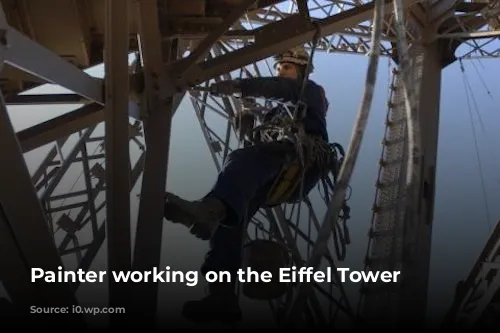
A Tower of Colors
Did you know the Eiffel Tower has worn seven different colors throughout its history? It’s true! The tower’s first coat was a gradation of colors, ranging from orange at the base to light yellow at the top. Since then, it has been repainted about every seven years, and is currently undergoing a major makeover. Workers are stripping off 19 layers of paint, revealing the tower’s true form. The new color, a yellow-brown hue supposedly favored by Gustave Eiffel himself, is a welcome change. This massive undertaking started in 2019, but delays caused by the pandemic and high lead concentrations have slowed progress.
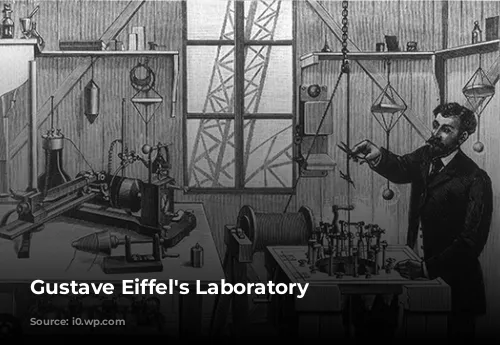
More Than Just a Cosmetic Overhaul
Some reports suggest the tower is battling rust and that the push to finish the makeover before the 2024 Olympics is preventing essential repairs. Despite these challenges, the project is expected to cost a whopping $60 million. The golden glow the tower will sport when completed will surely be worth the wait.
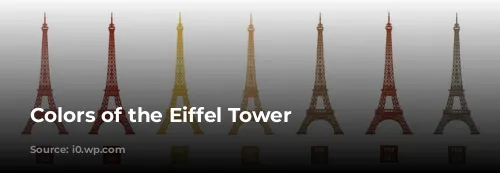
A Tower that Breathes… Literally
Made entirely of wrought iron beams, the Eiffel Tower is susceptible to thermal expansion and contraction. This means the tower actually grows and shrinks depending on the temperature! During the winter, freezing temperatures cause the tower to contract, while the summer heat makes it expand. This seasonal fluctuation results in a height difference of 6 to 7 inches.
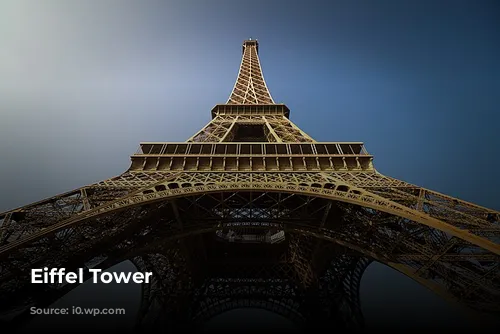
A Tower with a Slight Tilt
This phenomenon also causes a slight inclination away from the side of the tower facing the sun. The most extreme deviation occurred in 1976, when the top of the tower tilted 18 centimeters. Thankfully, these variations have no impact on the tower’s stability and are imperceptible to observers.
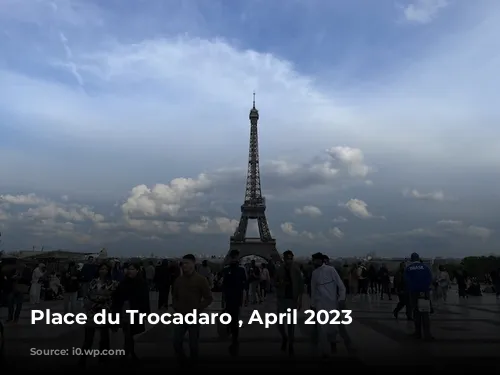
A Tower Destined for Demolition… Or Was It?
Built as a centerpiece for the 1889 World’s Fair, the Eiffel Tower was initially intended to be dismantled after 20 years. However, Gustave Eiffel, determined to save his magnificent creation, had a clever idea. He funded the installation of a meteorology laboratory on the highest level of the tower. Here, scientists conducted experiments and collected meteorological and astronomical data.

A Tower that Defied the Odds
The lab’s unique equipment and conditions attracted scientists from all over the world, effectively saving the tower from demolition. The Eiffel Tower remained the tallest structure in the world until the Chrysler Building opened in 1930. By that time, the tower had become a global icon, its initial reception as an eyesore long forgotten.
A Tower that Survived a Desperate Order
During World War II, as Allied forces closed in on Paris, Adolf Hitler ordered the destruction of the city. The military governor of Paris, General Dietrich von Choltitz, received a categorical order to destroy everything.

A Tower that Found its Savior?
There are conflicting accounts of what happened next. In his memoir, von Choltitz claimed he saved Paris by refusing to obey Hitler’s orders. This narrative is supported by the 2014 French film, starring Niels Arestrup. However, documentary filmmaker Françoise Cros de Fabrique disputed this story, claiming it was a myth.

A Tower that Nearly Met its Fate
Cros de Fabrique’s investigation uncovered evidence that von Choltitz was a strict officer who despised the French. Before surrendering, he had ordered the mining of several monuments and bridges. French police later disarmed the explosives. Von Choltitz failed to destroy Paris simply because he was running out of time and troops. He eventually accepted a ceasefire from Swedish diplomat Raoul Nordling to save himself, not the city.

A Tower that Defied Hitler’s Last Stand
Despite the ceasefire, Hitler ordered missile strikes on Paris, hoping to reduce it to rubble. General Hans Speidel, however, refused to carry out the order, finding the idea absurd. In reality, the strikes were impossible to execute.

A Tower that withstood a Bombardment
Hitler also directed the Luftwaffe, Germany’s airforce, to bomb Paris. One hundred and twenty airplanes dropped hundreds of bombs on Paris during the night of August 26, 1944. Missiles were also launched from Belgium. Thankfully, the strikes were inaccurate, and by October 6, Hitler focused his bombing efforts on London.

A Tower that Doesn’t Need to be the Most Visited
While the Eiffel Tower attracts 7 million visitors every year, other Parisian landmarks boast even higher visitor numbers. Versailles welcomes 10 million, Notre Dame attracts 12 to 14 million, the Louvre attracts about 8 million, and Disneyland Paris averages 12 million visitors annually.

A Tower that Captivates from Afar
I believe the Eiffel Tower’s lower visitor count is due to its magnificent stature. It’s visible from all over Paris, allowing everyone to enjoy its beauty from afar. Furthermore, the tower’s three platforms can only hold 5,000 people at once.
No one returns from Paris claiming they missed the Eiffel Tower, but many miss out on other attractions. I encourage you to share your own fun fact or interesting anecdote about the Eiffel Tower in the comments below.

